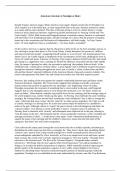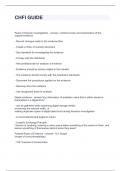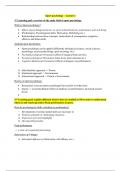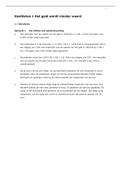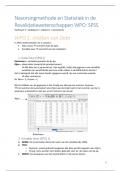Donald Trump’s election slogan ‘Make America Great Again’ helped win him the US Presidency in
2016. Implicit in it is the belief that, at some unspecified time in the past, America reached its zenith
as a nation and has since declined. This idea of the past acting as a key to a better future is a major
feature of much American literature, explored in parallel presentations in ‘Passing’ (1929) and ‘The
Great Gatsby’ (1925). Both Larsen and Fitzgerald present a twentieth century America as confronted
with the failure of its founding principles, and thus nostalgic for a time when the promise of equality,
bound up in the constitution and Declaration of Independence, still held weight. As Tony Tanner
notes, “of what might have been a wonderland […] we have made a wasteland”.
On the surface, however, it appears that the characters in both novels are far from nostalgic and are, in
fact, striving to escape their pasts. In The Great Gatsby, Gatsby denounces his parents as ‘shiftless
and unsuccessful farm people’, imagining himself instead as ‘a son of God’. His transformation from
James Gatz to Jay Gatsby signals a repudiation of the circumstances of his birth, shedding his roots in
favour of wealth and status. Likewise, in Passing, Clare seeks to distance herself from that ‘pale small
girl sitting on a ragged blue sofa’, claiming for herself the affluence associated with the white middle
class. By means of passing for white, she succeeds in replacing ‘that pathetic little red frock’ of her
childhood with ‘a stately gown of black taffeta’. Larsen signals Clare’s deliberate escape from penury
through her elaborate clothing throughout the novel, just as Gatsby’s ‘shirts of sheer linen and thick
silk and fine flannel’ represent fulfilment of the American Dream of upward economic mobility. The
result is the appearance that both Clare and Gatsby have broken ties with their respective pasts.
However, this reading of the texts ignores the complex relationship between past and future within
American literature. Arguably, The Great Gatsby suggests that nostalgia is actually a necessary
human instinct that protects us against the true ‘grotesque’ and ‘frightening’ nature of reality.
Nostalgia necessitates the reverence of something that is irrecoverably in the past, and Fitzgerald
suggests that it is the intangible nature of such dreams that motivates us to ‘run faster, stretch our
arms out father’. When denied a suitably inaccessible focus for his yearning, and the nostalgic tinge of
his world stripped away, Gatsby ‘breaks up like glass’. In Passing, Clare harbours the same vitalising
nostalgia. By visiting Harlem and the black community of her childhood, Clare is able to assuage the
‘ache... [the] pain that never ceases’ that her ‘pale life’ in white society engenders. For Clare as well
as Gatsby, nostalgia is a driving force for action and cannot simply be dismissed as a prohibitive
tether to the past. Although a desire to ‘repeat’ the past is shown to be both dangerous and futile, the
‘colossal vitality’ of an illusion is surely preferable to Irene’s ‘exquisite solace of suffering’. In
Passing, Irene’s obsession with ‘security’ and subsequent stasis imprison her in the past, refusing to
‘look the future in the face’. She bemoans that the ‘sweet and painful’ memories ‘of her courtship and
marriage and Junior’s birth […] would never come again’. Irene’s determined disillusionment, as
regards the status of her marriage and her children’s innocence, means that she falls short of the
‘gorgeous’ that both Clare and Gatsby encapsulate.
Clare achieves this status partly through the social norms that she so boldly explodes, threatening to
destabilise the wider status quo that Irene is nostalgic for. Thus, Irene’s desire that something should
‘remove Clare’ spawns from a deep-rooted nostalgia for a world uncomplicated by the racial and
sexual ambiguities embodied by Clare. Ironically, as Tom is an unequivocal racist and Irene a proud
black woman, this recalls Tom’s actively regressive nostalgia in ‘the Great Gatsby’. Through Tom’s
reference to the fictional work ‘The Rise of the Coloured Empires’, Fitzgerald makes cultural
reference to ‘The Rising Tide of Color against White World Supremacy’ by Lothrop Stoddard. In
doing so, he invokes the beliefs and practises of eugenics. While ostensibly aimed at improving the
genetic quality of the human population, eugenics is now widely acknowledged to have been a
method of controlling ethnic minorities and preserving the position of dominant groups within the
population. Nostalgic for an established social order undisturbed by reforms, men like Tom Buchanan
, blockaded social mobility in favour of simpler times – even if the inevitable collorary of ‘simplicity’
was oppression and inequality.
In this way, both Larsen and Fitzgerald demonstrate how misplaced nostalgia is destructive because it
idealises a way of life that is better left in the past. In Passing, Jonathan Little suggests that Clare’s
nostalgia ‘to see Negroes, to be with them again’ is misplaced because even ‘after returning back
across the colour line into the black community, Clare Kendry finds no peace, rest, loyalty’. Gatsby,
too, pays with his life for placing his faith in a past that becomes hostile to him. In a wider sense,
Fitzgerald suggests America’s desire to return to 1620, when the first pilgrims arrived on Plymouth
Rock (a time when the possibility of greatness could still have become a reality), is misguided. As
William Carlos Williams notes, whatever the ‘Dutch sailors’ came for, they came not to wonder at
America, but rather, in various ways, to ‘rape’ it. The maternal ‘green breast of the New World’ is
irretrievably in the past and has given way, as an image, to the shocking spectacle of Myrtle’s left
breast, ‘swinging loose like a flap’. It's clear that Fitzgerald wants to show an America fated to be
desecrated, mutilated and violated from the beginning.
Thus, it is clear that the American consciousness has long since been defined by its connection to the
past, or at least an idealised version of it. While neither novel offers a definite thesis on the morality
of nostalgia, they suggest that – when taken too far – it loses its capacity as a productive force.
Nostalgia is ultimately unproductive for Clare and Gatsby because it dissociates them from reality.
Clare remains an ‘attractive, somewhat lonely child’, while James Gatz remains ‘faithful to the end’ to
a persona he conceived as a ‘seventeen year old boy’. Neither Clare nor Gatsby can grow up because
their present is a self-construct, created in and defined by the past. Both are nostalgic, not simply for a
time or place, but for the self they left behind there. It is this that prevents them from finding
fulfilment and dooms them to chase a dream that they are destined to be ‘eluded’ by.

